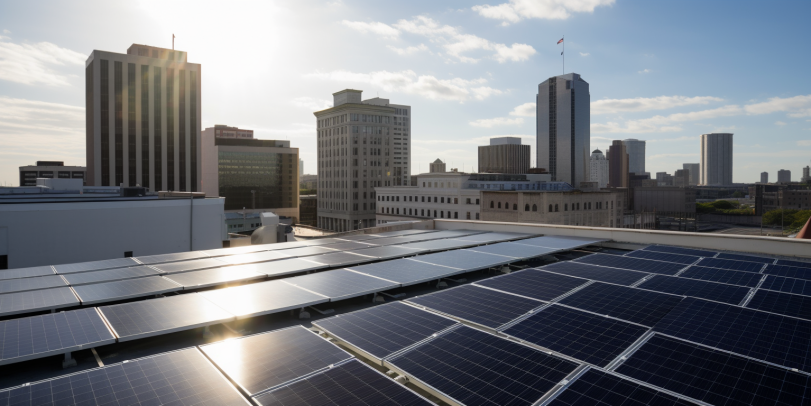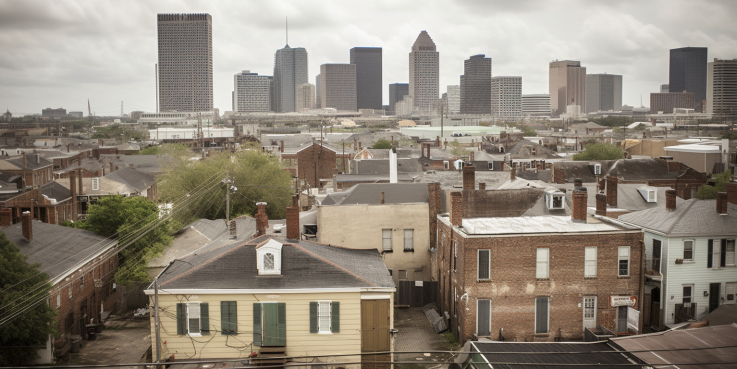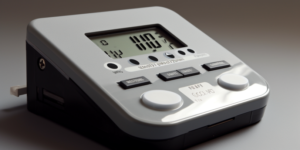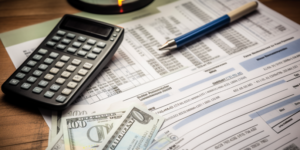
In a world where the sun shines bright and the cost of electricity continues to rise, the idea of harnessing solar energy seems like a no-brainer. And what better place to embrace this renewable source of power than in the bustling city of New Orleans? With its vibrant culture, rich history, and unique blend of influences, New Orleans is no stranger to embracing change and innovation. So, why not make the switch to solar?
In this article, we will explore the economic benefits of adopting solar energy in the Big Easy. From the significant savings on installation costs to the enticing incentives and tax credits available, the financial advantages of going solar are hard to ignore. By delving into the factors that affect the cost, as well as the various financing options available, we hope to shed light on the immense potential that solar energy holds for the residents of New Orleans.
So, let’s dive in and uncover the economic benefits of making the switch to solar in the vibrant city of New Orleans.
Key Takeaways
- Solar panel cost in New Orleans, LA is $3.23/W as of July 2023.
- Installing an average-sized solar system can save $32,489 over 20 years.
- Solar installations in New Orleans, LA are eligible for the 30% solar tax credit.
- EnergySage can save 15 to 25 percent on the cost of solar compared to going solar outside of EnergySage.
The Economic Benefits
The economic benefits of solar in New Orleans can be observed through the savings generated over a 20-year period, which can amount to $32,489 for an average-sized solar system installation.
These savings are made possible through various solar incentives and cost savings. One of the main incentives available in New Orleans is the 30% solar tax credit, which can significantly reduce the upfront cost of installing solar panels.
Additionally, the cost of electricity in New Orleans is relatively high, making solar a cost-effective alternative. The availability of sunlight and favorable sun angles in the area also contribute to the economic benefits of solar in New Orleans.
By taking advantage of these incentives and factors, homeowners can not only reduce their electricity bills but also potentially earn money through net metering programs and sell excess energy back to the grid.
Overall, switching to solar power in New Orleans offers substantial economic advantages.
Factors Affecting Cost
Factors such as system size, panel brand and quality, panel type, roof complexity, installation company, and permits and interconnection fees play a significant role in determining the cost of solar panel installations.
The size of the solar system is a key factor as larger systems typically require more panels and components, resulting in higher costs.
The quality of the panels also affects the cost, as higher quality panels tend to be more expensive but may provide better performance and durability.
Additionally, the type of panels used, such as monocrystalline or polycrystalline, can impact the cost.
The complexity of the roof, including factors like its pitch and orientation, can influence installation costs.
The choice of installation company can also affect the overall cost, as different companies may have varying pricing structures.
Finally, permits and interconnection fees required by local authorities can add to the total cost of the installation.

Financing Options
Different financing options are available for individuals interested in installing solar panels. These options include solar lease, power purchase agreement (PPA), cash purchase, and solar loan.
Here is a breakdown of these financing options:
-
Solar Lease vs. Power Purchase Agreement (PPA):nnWith a solar lease, the homeowner pays a fixed monthly lease payment to the solar company in exchange for the use of the solar panels.nnIn contrast, a PPA allows the homeowner to purchase the electricity generated by the solar panels at a predetermined rate.nnBoth options allow homeowners to avoid the upfront cost of purchasing the solar panels.
-
Cash Purchase vs. Solar Loan:nnA cash purchase involves paying the full cost of the solar panels upfront.nnThis option allows homeowners to take advantage of any available incentives and tax credits immediately.nnOn the other hand, a solar loan allows homeowners to finance the cost of the solar panels over time, making it more affordable in the short term.
These financing options provide flexibility for homeowners to choose the best option that suits their financial situation and goals.

